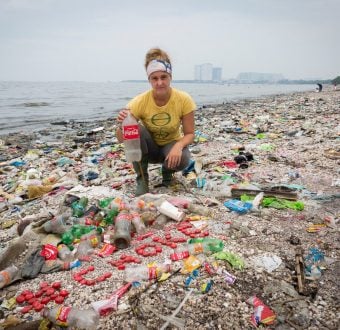Survivors Demand Justice from CEO
Midland, Michigan, May 9, 2002 – At the Dow
Chemical annual shareholders meeting today, representatives of
survivors and support organizations demanded Dow CEO Michael D.
Parker clean up the contamination, and compensate the victims for
the ongoing medical and economic hardships caused by the gas
disaster in Union Carbide’s pesticide factory in Bhopal, India, in
1984. Dow purchased Union Carbide in 2001 but has refused to accept
Carbide’s pending liabilities for environmental and human rights
violations in Bhopal.
“It is my hope that the gravity of our situation can be
understood by our willingness to travel around the world to state
our case for five minutes,” said Dr. H. H. Trivedi, a Bhopal
survivor who addressed Mr. Parker during the Q&A phase of the
meeting. Parker’s refusal to meet privately with the survivors the
day before the shareholders meeting prompted Dr. Trivedi to
comment,Ý “How can your company tout its dedication to corporate
responsibility while turning a cold shoulder to us?”
The Bhopal survivors allied themselves with Midland residents,
citing the recent discovery of widespread dioxin pollution at the
local Dow plant that poses a serious threat to the community. As
part of their US tour, the survivors donated to the Midland Center
for the Arts a replica of the Bhopal monument originally dedicated
to the victims of the disaster. At an unveiling ceremony, Midland
and Bhopal were named sister cities, united in their chemical
legacies and by Dow’s lack of commitment to clean up their toxic
waste and prevent a Bhopal-type disaster from happening elsewhere.Ý
Also, part of the Bhopal alliance is a growing number of U.S.-based
South Asians.
The poison gas leak from the Bhopal factory in 1984 killed an
estimated 8,000 immediately. More than 120,000 people suffer severe
medical problems even today and are in need of urgent medical
attention. Union Carbide only paid between $370-$533 per person to
the Indian Government in February 1989. Hundreds of thousands have
missed out on adequate or proper compensation. The abandoned
factory remains, with toxic waste and pesticide residue strewn
about the property. The groundwater in the area is still
contaminated.
“Dow’s ownership of Union Carbide has not changed the need for
the Bhopal site to be cleaned up or for the survivors to be
rehabilitated,” noted Dr. Mary Elizabeth Harmon, of Greenpeace.
“U.S. law doesn’t absolve responsibility for contamination due to
transition of ownership. A lesser standard outside the US is
unconscionable,” she continued.
An international coalition,
including survivors, has formed to convince Dow Chemical to take
responsibility for the toxic legacy in Bhopal. The coalition, which
includes Greenpeace, the Bhopal Gas Affected Women Stationery
Workers Association, Bhopal Gas Affected Pensioners Association,
Bhopal Group for Information and Action, National Campaign For
Justice in Bhopal, The Other Media and CorpWatch India, Ecology
Center of Michigan, Environmental Health Fund, Environmental Health
Watch, Pesticide Action Network, Essential Action, Bhopal Action
Resource Center and the Center forHealth, Environment and Justice
have demanded that Dow:
- clean up the abandoned Union Carbide site in Bhopal,
India; - provide long term medical assistance and services to the Bhopal
victims; - ensure economic rehabilitation for the victims; and
- face criminal liability charges as owners of Union Carbide in
the ongoing case pending in the Bhopal District Court.

